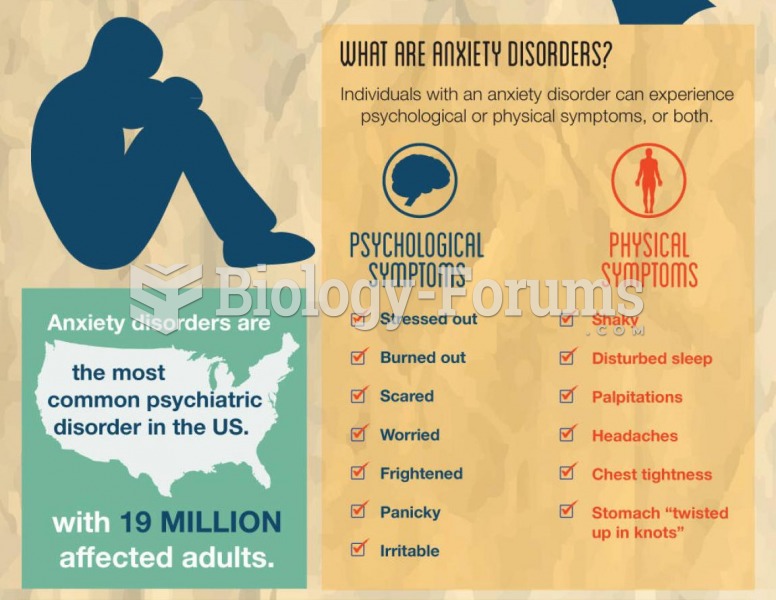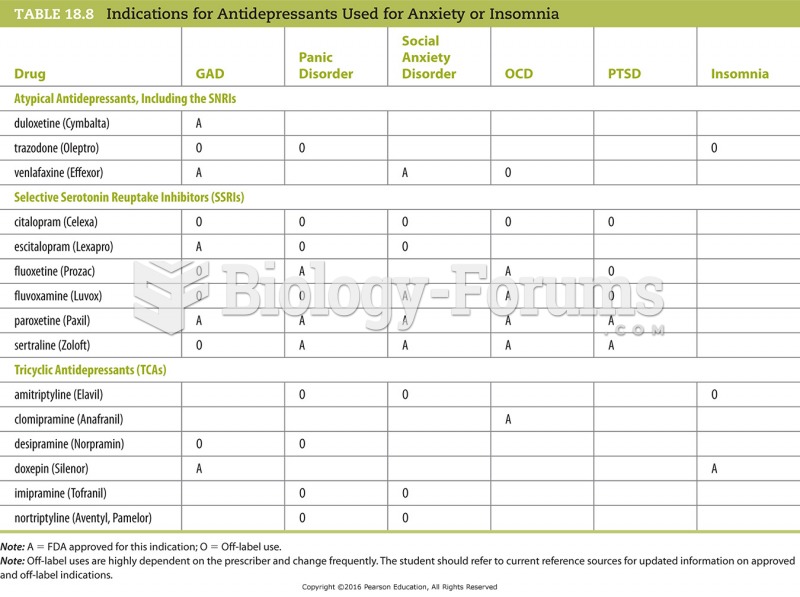|
|
|
The human body produces and destroys 15 million blood cells every second.
In the United States, an estimated 50 million unnecessary antibiotics are prescribed for viral respiratory infections.
Human kidneys will clean about 1 million gallons of blood in an average lifetime.
Once thought to have neurofibromatosis, Joseph Merrick (also known as "the elephant man") is now, in retrospect, thought by clinical experts to have had Proteus syndrome. This endocrine disease causes continued and abnormal growth of the bones, muscles, skin, and so on and can become completely debilitating with severe deformities occurring anywhere on the body.
When blood is deoxygenated and flowing back to the heart through the veins, it is dark reddish-blue in color. Blood in the arteries that is oxygenated and flowing out to the body is bright red. Whereas arterial blood comes out in spurts, venous blood flows.







